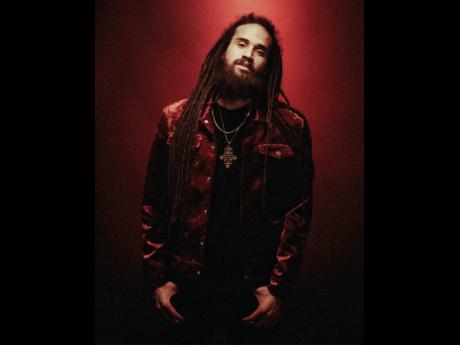Keznamdi seeks to liberate with ‘Natty Dreadlocks’
Ready to disturb the comfortable
Jamaica was only a few days shy of its 58th Independence celebrations when a ruling by the Supreme Court turned the nation upside down. The highest court in the land had just ruled in favour of the institution that barred a young dreadlocked girl from school because of her hair. Reggae artist, Keznamdi recalls the rage and disgust he felt when he heard the news. A downright travesty was how he termed the entire ordeal. With the events still very fresh his mind, the artiste penned the lyrics to the track Natty Dreadlocks. Vowing to use his music to create the change he wants to see in Jamaica, Keznamdi says he is on a mission to make the powers that be so uncomfortable that they have no choice but to start protecting and preserving the rights of Rastafrai.
“The main inspiration for this song was last year’s incident with the little girl and her being barred from school for her locks. I was seriously disappointed that with all the contributions Rasta has made to Jamaica, we’re still being treated with such disdain. It’s appalling,” he said. “We never got the chance to release Natty Dreadlocks at that time, and because the song was so specific, we were having a discussion about dropping it still. We decided to do it anyway because the message is important, and then ironically, we have another issue involving Rastafari happening right now. It come in like it was destiny. It feels like somebody come inna me and write da song deh fi dis particular moment.”
The entertainer was making reference to the recent incident involving 19-year-old Princess Nzinga Candice King, who was allegedly trimmed while in lock-up at the Four Paths Police Station. For Keznamdi, Rastas have been ill-treated for far too long, and now is the time for action. “It’s crazy to me how I wrote that song not knowing that this woulda be happening right now, and it kinda sad. I really hoped that these behaviours were something of the past, but systematically, it is clear that certain changes need to be made, especially in Jamaica as it relates to Rasta and indigenous people,” he shared. “We just celebrated Emancipation and Independence in Jamaica, but we are not thinking for ourselves. We are still under colonial rule, and this is bigger than even Rastafari. This is about our African roots and those ideals being suppressed. We are lost as a people, and we have to find ourselves real soon.”
RENEWED SENSE OF PURPOSE
This is a fight to which the entertainer has pledged allegiance. Vowing to use his platform to bring about change, Keznamdi says he has been doing some soul searching of late and has a renewed sense of purpose. With this fresh sense of clarity, the artiste says he is looking forward to using his music to light a fire under the tails of Government officials, pushing them towards action.
“Jamaica Government inna big trouble. I have rebirthed myself as an artiste, and mi sorry fi dem because mi a guh talk my mind. I have a fresh outlook and a new focus, and certain things, like making a change, matter to me a lot more. It’s all about what’s in my heart. Mi a write and sing about weh me feel. I want to use my music to get some people upset because the revolution is here,” he said.
With that said, the artiste says financial success is no longer a huge focus for him. Instead, he wants his music to create impact – the kind of impact that will foster change. “I never planned to make no big thing off this song. That was never the aim. This was all about raising awareness. People can delay change by sweeping things under the carpet, but one thing you can’t do is sway the power of music and melody,” he said. “I have reached a point in my career where I am over trying to make a hit song because let’s face it, big press and deejays don’t want to cover music like this, but we still affi push out the music because people need it. With messages like this coming at them constantly, it’s a chance for the Jamaican Government to start the healing process.”
Speaking of healing, Keznamdi says that for that process to get under way, the powers that be need to issue an apology to Rastas for all the things they have had to endure over the years. He says that although that alone won’t solve the problem, it’s a start. “We need a big public apology to Rastafri for all di things dem weh gwaan over the years, all the discrimination, the violations of our human rights. Our identity as Jamaicans is Rasta. Yuh think people come to Jamaica fi just lay dung pan beach? Dem can go Bahamas and Tulum and dem place deh. People come to Jamaica for reggae, Rasta, and ganja,” he pointed out. “We have to protect the cultural sovereignty of indigenous people. Rasta are indigenous people, a national treasure of Jamaica that needs to be preserved, not just protected, but preserved.”

